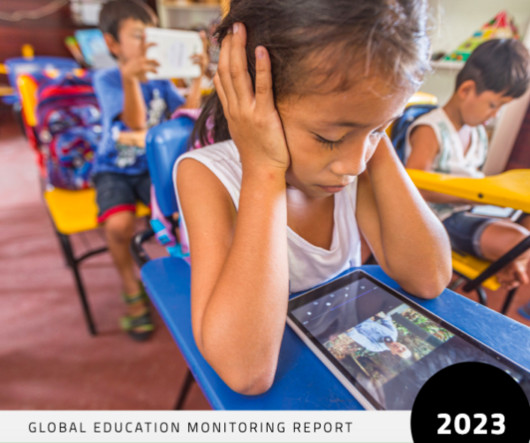Number crunch: Edtech data you can use right now
eSchool News
AUGUST 3, 2023
For example, distributing computers to students does not improve learning if teachers are not involved in the pedagogical experience. It calls for all countries to set benchmarks for connecting schools to the internet between now and 2030 and for the focus to remain on the most marginalized. Is it scalable?
















Let's personalize your content